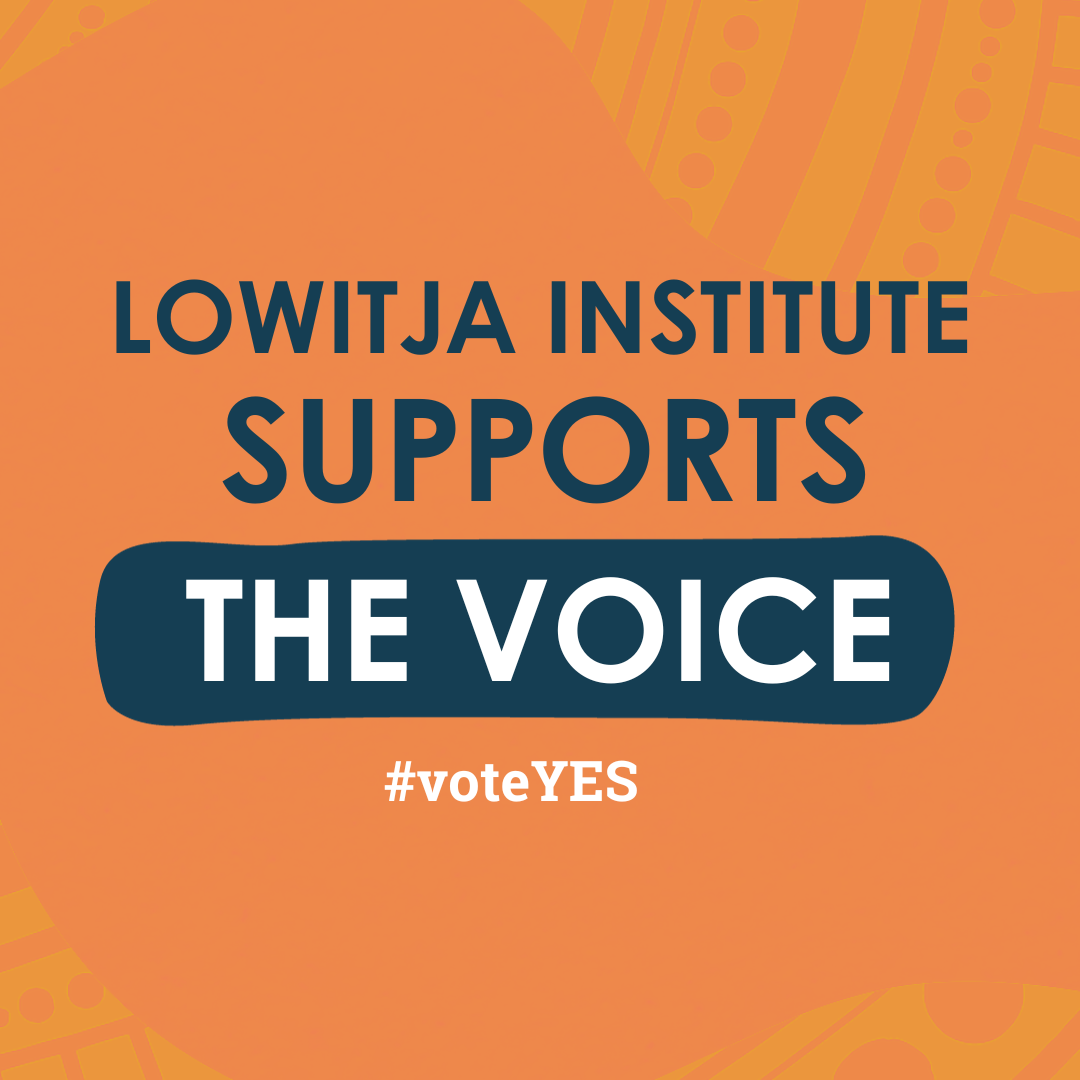Lowitja Institute calls on Australians to vote ‘Yes’ to the Aboriginal and Torres Strait Islander Voice

Lowitja Institute puts its full support behind a constitutionally enshrined Aboriginal and Torres Strait Islander Voice and calls on Australians to vote ‘Yes’ in the upcoming referendum.
CEO, Adjunct Professor Janine Mohamed, highlighted the opportunity and responsibility that Australians have in exercising their right to vote in the upcoming referendum.
‘This is a profound point in our peoples’ history and our shared story as Australians moving forward together. It is so important that we are acknowledged in Australia’s birth certificate.’
‘In the 235 years since colonisation, Aboriginal and Torres Strait Islander peoples have had policies made about us – without us. This has had devastating impacts to our health outcomes,” Adjunct Professor Mohamed said. “When we are not included in decision-making, when our voices are silenced, we are harmed. We see these policy failings in the tragic legacy of the Northern Territory intervention; in the appalling gap in health outcomes for our peoples.’
‘This referendum is about recognising Aboriginal and Torres Strait Islander peoples’ important place in Australia’s history and future. As First Peoples of this nation, we have been connected to these lands and waterways as traditional custodians for 60 millennia.’
‘The Voice is about ensuring that our peoples have a say, and that our daily realities are factored into government decision-making,” she said. “To non-Indigenous Australians who are considering how they’ll vote in this referendum, your decision is important. You have real power to make a difference in closing the gap.’
‘In this referendum, intention doesn’t matter. Impact matters. The reality is that your vote, whether it’s ‘Yes’ or ‘No’, will shape the direction of this country. It will determine whether our peoples’ aspirations for our children and future generations’ health and happiness can be realised. There’s huge responsibility in that.’
‘I urge every non-Indigenous Australian to vote from your heart. To vote ‘Yes’ so that Aboriginal and Torres Strait Islander peoples can look forward to living long, healthier lives. So that we as a nation can heal and grow towards true reconciliation.’
Selwyn Button, Lowitja Institute Chairperson and member of the First Nations Referendum Engagement Group, spoke to the depth of Aboriginal and Torres Strait Islander collective discussion and advocacy that supports the proposed Voice to Parliament.
‘The Uluru Statement from the Heart is a document that was written after extensive dialogues that included representatives from Aboriginal and Torres Strait Islander communities right across this country. It has had input from our leaders and experts, including constitutional law experts,” Mr Button said. “The three proposed reforms – Voice, Treaty, Truth – are well-considered solutions to the inequality and disadvantage caused by colonisation in this country. More importantly, they are Aboriginal and Torres Strait Islander solutions.’
‘To see real improvements in outcomes, our peoples need to be at the centre of decision-making. Government at its highest levels needs to hear our voices, understand our priorities and take our advice. This is what the Voice will facilitate.’
‘The wording of the proposed constitutional amendment is an enabling function so that we can establish the Voice. The design of the legislation is Parliament’s job, with advice from various reports, experts and a consultation process.’
‘Australians can rest easy that the proposed constitutional amendment will not change how government operates; it will simply enhance government decision-making in a way that improves outcomes for Aboriginal and Torres Strait Islander peoples.’
Lowitja Institute fully supports the establishment of a constitutionally enshrined federal Aboriginal and Torres Strait Islander Voice as described in the Uluru Statement from the Heart, as well as full implementation of the Uluru Statement: Voice, Treaty, Truth. Lowitja Institute also encourages states and territories to implement the Uluru Statement in their jurisdictions.

